
PhD, Biology, Healthy, and Biotechnology
University of Toulouse, 2015
MS, Cellular Biology and Physipathology
University of Bordeaux, 2012
BS, Biological Sciences
University of Bordeaux, 2009
Malik Bisserier, PhD
Principal Investigator
Dr. Malik Bisserier is an Assistant Professor of Cell Biology & Anatomy, and Physiology at New York Medical College in Valhalla, NY. As an independent investigator, Dr. Bisserier has successfully secured several grants from the Cardiovascular Research Medical and Education Fund. He is the recipient of K01 award from the National Heart, Lung, and Blood Institute, recognizing their contributions to the field.Dr. Bisserier has actively participated in multiple research projects focused on pulmonary arterial hypertension (PAH) and idiopathic pulmonary fibrosis (IPF).
During his postdoctoral training at Yale University and the Cardiovascular Research Institute at Mount Sinai, Dr. Bisserier specialized in studying epigenetic modifications in Diffuse-Large B Cell Lymphoma and PAH. Dr. Malik Bisserier received a training grant T32 during his postdoctoral training at Mount Sinai. This prestigious grant was awarded while working in the laboratory of Dr. Lahouaria Hadri. This opportunity provided Dr. Bisserier with valuable training and further enriched their research experience. The collaborative environment and mentorship under Dr. Hadri greatly contributed to Dr. Bisserier’s professional growth and expertise in the field of pulmonary arterial hypertension and idiopathic pulmonary fibrosis research. His research involved the utilization of gene therapy and advanced omics techniques, such as RNA-Seq, ChIP-seq, Whole exome sequencing, and Next-generation sequencing. These research efforts have resulted in the co-authorship of over 37 peer-reviewed publications in prestigious high-impact journals.
The Bisserier Lab is dedicated to investigating predisposing factors and characterizing their impact on the severity of PAH. The research focus encompasses the study of epigenetic, transcriptional, and post-translational modifications to gain a deeper understanding of their role in the manifestation of PAH-associated symptoms. Dr. Bisserier benefits from a supportive and collaborative research environment at New York Medical College, which empowers them to pursue important scientific endeavors and develop new therapeutic strategies.
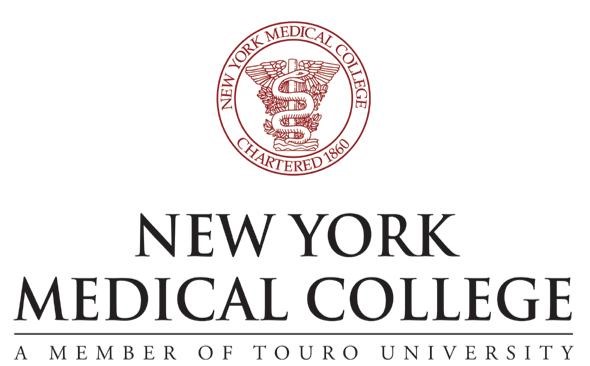
Vineeta Jagana
Research Assistant
Vineeta Jagana is a dedicated biomedical professional with a Bachelor of Science in Biochemistry and is currently pursuing a Master of Science in Cell Biology at New York Medical College. Her research focus centers on Infantile Spasms, a complex area in pediatric neurology. Vineeta’s extensive experience includes her role as a Clinical Information Manager (CIM) and Trainer at Envision Health Services in Valhalla, New York, where she ensures accurate patient documentation and provides comprehensive training to new CIMs.
She also contributes to neuroscience research at the Velisek-Veliskova Seizure Lab and is an enthusiastic tutor at Grade Potential Tutoring. Vineeta is passionate about mentoring and community engagement, serving as a Peer Mentor and Ambassador at the Graduate School of Biomedical Sciences, New York Medical College. Her dedication to healthcare, education, and research exemplifies her commitment to making a positive impact.

Benedetta Ricchi
Visiting Student
Benedetta Ricchi is a visiting student from the University of Parma, Italy. She holds a Bachelor’s Degree in Biological Sciences from the University of Bologna, where she gained a comprehensive understanding of human biology.
Currently pursuing a Master’s Degree in Translational Biomedical Sciences at the University of Parma, her academic journey focuses on the intersection of biology, medicine, microbiology, and immunology. Benedetta’s commitment to her field is evident through her internship experience at the Unità microbiologica Policlinico Sant’Orsola di Bologna, where she contributed to research on human faecal microbiota transplantation for Clostridium infection.
With a strong foundation in laboratory techniques, she also possesses excellent communication and organizational skills, making her a promising candidate for future endeavors in the biomedical sciences.
Finally, she is set to join the laboratory of Dr. Bisserier in October 2023, which promises to further enrich her research experience and knowledge in the field.

Jaydev Dave
Medical Student
Jaydev H. Dave is a highly accomplished individual with a strong academic background and extensive research experience. Currently pursuing an M.D. at New York Medical College, he holds an M.S. in Biomedical Science from the Icahn School of Medicine at Mt. Sinai and a B.S. in Biochemistry with a minor in Astrophysics from Tufts University.
Jaydev’s research spans multiple fields, from stem cell-based drug response variability to biochemical exploration of glycation in diseases. His proficiency extends to a wide range of laboratory techniques, including cell culture, mass spectrometry, and molecular biology.
Jaydev has also been recognized for his public speaking skills and commitment to community service, making him a well-rounded and accomplished individual.
Alumni
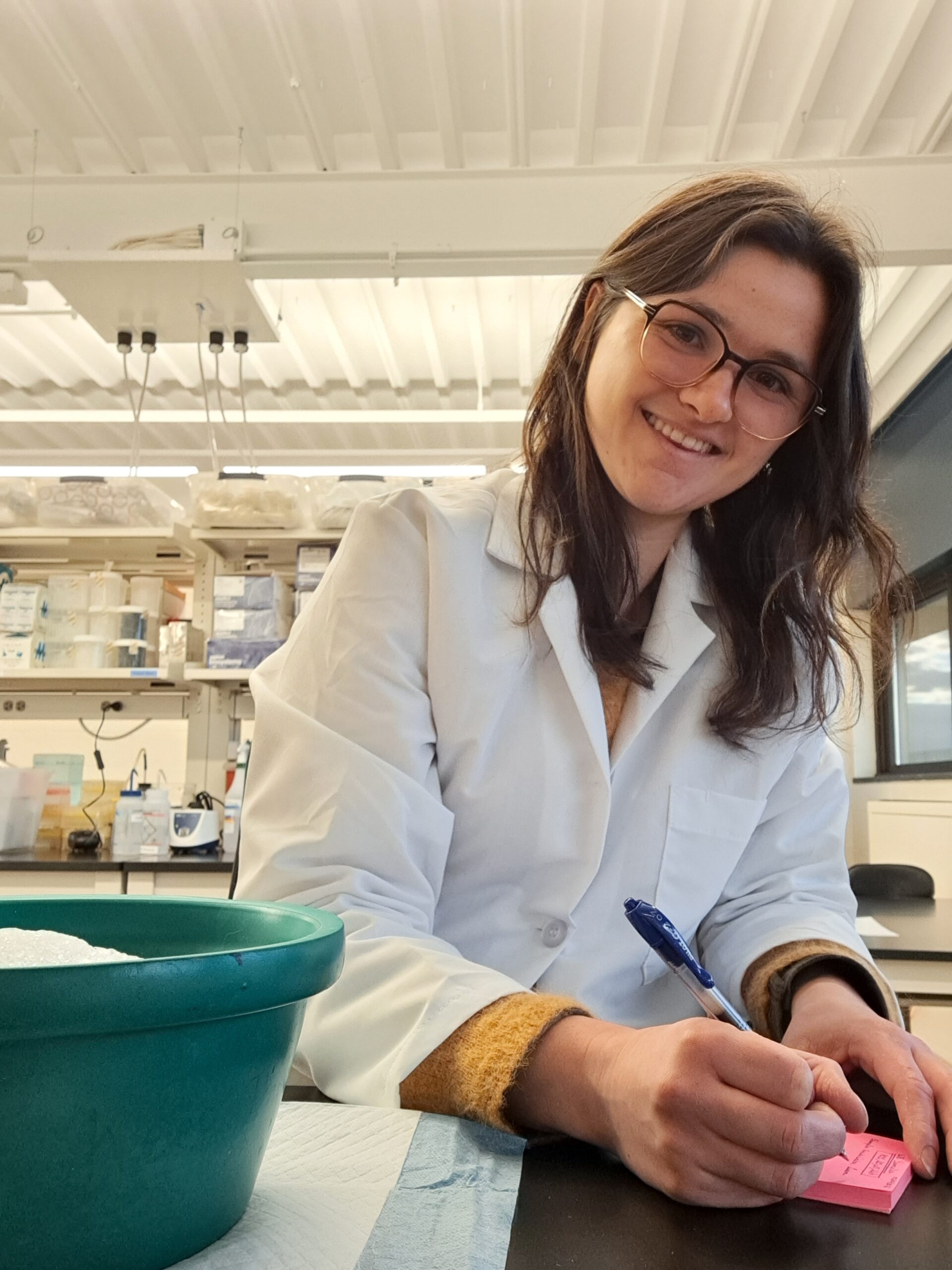
Celine Leppert
Master Student
Celine is pursuing her Master’s in Genetics at the University of Bordeaux, France. In January 2023, Celine joined the laboratory of Dr. Bisserier, where she has gained valuable experience in various molecular and cellular biology techniques such as cell culture, protein and RNA extraction, western blotting, qRT-PCR, and immunostaining. Her research project focuses on the transcriptional and epigenetic mechanisms involved in pulmonary arterial hypertension.
Celine aspires to continue her journey by pursuing a PhD and enjoys dancing, playing volleyball, and exploring new places in her free time.
Collaborators
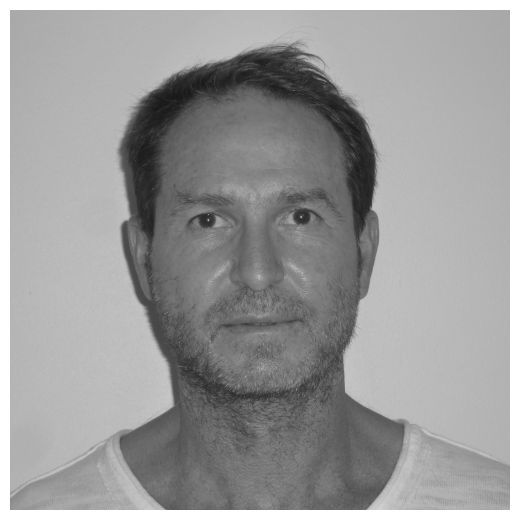
Frank Lezoualc'h
Principal Investigator,
Associate Professor of Pharmacology, University of Toulouse
Co-Director of the Metabolic and Cardiovascular Diseases Institute
Director of the «Signaling and Pathophysiology of Heart Failure» laboratory
Frank Lezoualc’h is expert in the identification of novel therapeutic target for heart failure. He has provided significant contributions elucidating the role and signaling of the cyclic AMP Epac proteins and Carabin in cardiac disease. He was pioneer in the characterization of Epac1 pharmacological inhibitors and their potential use as therapeutic molecules in several diseases.
Career path
Frank Lezoualc’h obtained his PhD in Molecular Endocrinology from the University Pierre & Marie Curie, Paris in 1995. After a postdoc at the Max-Planck Institute in Munich, he developed his own group in molecular cardiology at Inserm, University of Paris-Saclay in 2000. He joined I2MC of Toulouse in 2010 as research director at Inserm and team leader.
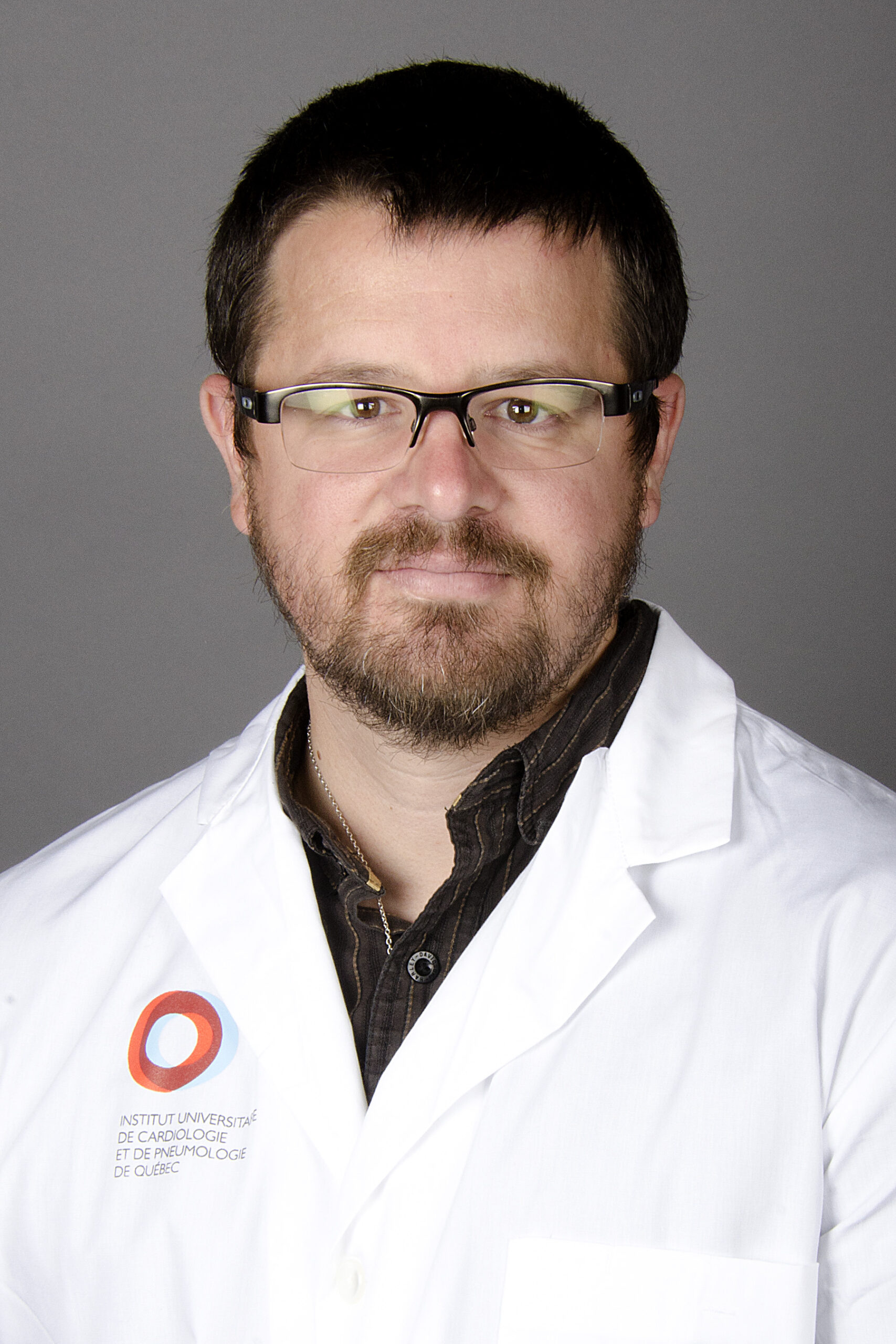
Sebastien Bonnet
Principal Investigator,
Director of the pulmonary hypertension research group
Director of the Canadian research Chair in translational research in pulmonary vascular diseases
Chair of the American Heart Association 3CPR council
After having completed a doctorate degree in vascular physiopathology in France and a post-doctorate degree in vascular biology in Alberta, Dr. Bonnet settled in Québec city, as an associate professor at Université Laval and a researcher at the Research Centre of the IUCPQ where he continues his research in the cardiovascular field.
Professor Bonnet was named Fellow of American Heart Association and Director of the Canadian Research Chair in vascular pathology. This title, considered as one of the greatest honors in the scientific community, is allotted to researchers who showed leadership, creativity and exceptional competence in the advancement of fundamental and clinical research in the cardiovascular field.
The accomplishments of Professor Bonnet led to the discovery of mechanisms causing pulmonary arterial hypertension, a fatal disease which strikes mainly young adults. His team also discovered two substances likely to treat this disease effectively. Drs Bonnet and Provencher are the founders and directors of the pulmonary hypertension research group.
The group of Dr. Bonnet uses a multidisciplinary and translational approach (from genes to population) in order to study the molecular and cellular mechanisms involved in the development of the process of vascular and bronchial remodeling. This work allows the identification of new biomarkers, thus improving the identification and clinical management of individuals afflicted by PAH. His research also identified new therapeutic targets such as Pim-1, miR-204 or PARP-1 in PAH. In addition, numerous works carried out in the laboratory of Dr. Bonnet aim at evaluating the impact of these targets in the COPD and the coronary diseases which have several similarities with PAH.
The recent association of Drs Bonnet and Provencher creating the pulmonary hypertension research group offers new prospects of research in PAH. Indeed, the association of the fundamental research of Dr. Bonnet to the clinical research of Dr. Provencher allows research projects initiated in the laboratory to reach the patient’s bedside which will accelerate, without any doubt, the discovery of new therapies.
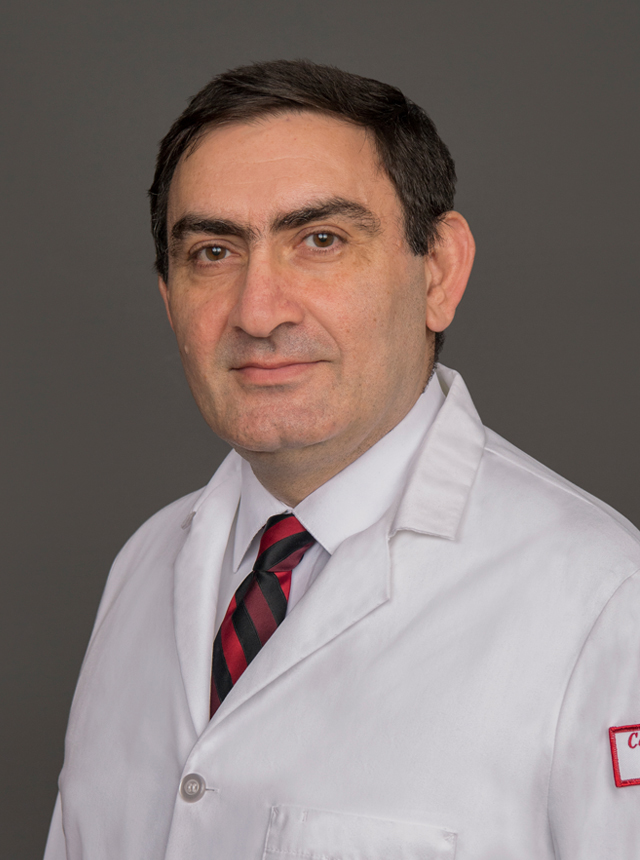
David Goukassian
Principal Investigator
The Goukassian Laboratory is a part of the Cardiovascular Research Center at Icahn School of Medicine at Mount Sinai. The laboratory focuses on four areas in basic and translational research – Cardiac Repair, Stem and Progenitor Cell Biology, Cardiovascular Space Radiobiology, Pathological Angiogenesis and Novel Cancer Therapeutics.
Dr. David Goukassian joined the faculty of Cardiovascular Research Center at Icahn School of Medicine at Mount Sinai in 2018 from the Center of Translation Medicine at Tempe University School of Medicine.

Jeanne Mialet-Perez
Principal Investigator
Jeanne Mialet-Perez leads a research axis on the molecular and cellular mechanisms that govern cardiomyocyte senescence, aging and heart failure (HF). HF is a major cause of death and hospitalization in subjects over 60 and its prevalence is constantly increasing due to the aging of the population. Our aim is to obtain a better understanding of altered signaling pathways in pathological cardiac agingg in order to identify new therapeutic targets. To achieve these goals, research programs range from molecular and cellular, to the most integrative levels of cardiac pathophysiology using in vivo models of HF and aging. Our research work has been pioneer in the study of the role of the mitochondrial enzyme monoamine oxidase-A (MAO-A) and its mechanisms of action in acute and chronic cardiac diseases (Santin, Aging Res Rev 2021). We have shown for the first time that increased expression of MAO-A in mouse heart, as observed in aging, led to chronic oxidative stress, energetic deficit, impairment of autophagic flux, cardiomyocyte necrosis and HF (Villeneuve C, ARS 2013; Santin Y, Cell Death Diff 2020; Santin Y, ARS 2016; Miceli C, Ox Med Cell Longev 2018).
More recently, we showed in vitro that sustained MAO-A-dependent oxidative stress promoted DNA Damage Response (DDR) with the appearance of senescence markers (p53, p16, SA-bgal) (Manzella, Aging Cell 2018). Subsequently, further molecular analysis allowed us to identify non-canonical mechanisms of cardiomyocyte senescence. We observed that aged cardiomyocytes accumulated persistent damage in telomeric regions, promoted by mitochondrial dysfunction and responsible for the senescence phenotype (Anderson R, Embo J 2019). Importantly, pharmacological or genetic clearance of senescent cells in mice attenuated adverse features of cardiac aging such as hypertrophy and fibrosis (Anderson R, Embo J 2019) as well as post-ischemic damage (Dookun E, Aging Cell 2020). Altogether, this suggests that mitochondria play a major role in the cellular processes leading to pathological aging and/or HF.
The research project within the Mitovasc Unit in Angers is dedicated to study mitochondrial health in order to understand how oxidative stress and alterations of the mitochondrial genome contribute to the age-related cardiac pathologies and to develop new therapeutic approaches for age-associated cardiac diseases.
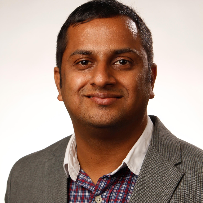
Srikanth Venkata Garikipati
Principal Investigator
The laboratory of Dr. Garikipati evaluates the biogenesis and function of short ncRNAs micro RNA (miRNA), small nucleolar RNA (snoRNA) and Piwi-interacting RNA (piRNA), and long ncRNAs linear long-noncoding RNA (lncRNA) and circular RNA (circRNA) in cardiovascular health and disease. We employ various modern and classical technologies such as RNA sequencing, single-molecule FISH, non-coding RNA pull-down assays, exosomes isolation, AAV9 mediated non-coding RNA delivery, LNA Gapmer based non-coding RNA silencing, and mouse models (diabetic and non-diabetic) of myocardial infarction. We believe identifying and characterizing non-coding RNA that play a regulatory role in the network of interactions governing cardiovascular health and disease is a real puzzle that needs to be solved to allow better treatment and prevention of cardiovascular disease. Our long-term goal is to identify novel therapeutic targets for the treatment of myocardial infarction.
Dr.Garikipati’s lab focuses on the following research areas:
Role of long ncRNA (lncRNA and circular RNA) in diabetic cardiomyopathy
Role of small ncRNA (miRNA, mtRNA, snoRNAs, and piRNA) in cardiovascular health and disease
Role of exosomal- ncRNA (lncRNA, circular RNA, miRNA, snoRNAs, and piRNA) in cardiovascular health and disease
We are also investigating the space flight associated exosomal RNA changes in the astronaut’s plasma (In collaboration with Dr.Goukassian at Mount Sinai, NY).

Marcello Rota
Principal Investigator,
Associate Professor of Physiology
Dr. Marcello Rota is interested in cellular alterations underlying the defective performance of the diseased heart and identification of corrective interventions aimed at restoring the functional properties of the myocardium.
His research is centered on signaling pathways activated in the heart following ischemic injury and the interplay between electrical properties of cardiomyocytes and contractile function of the aged heart.